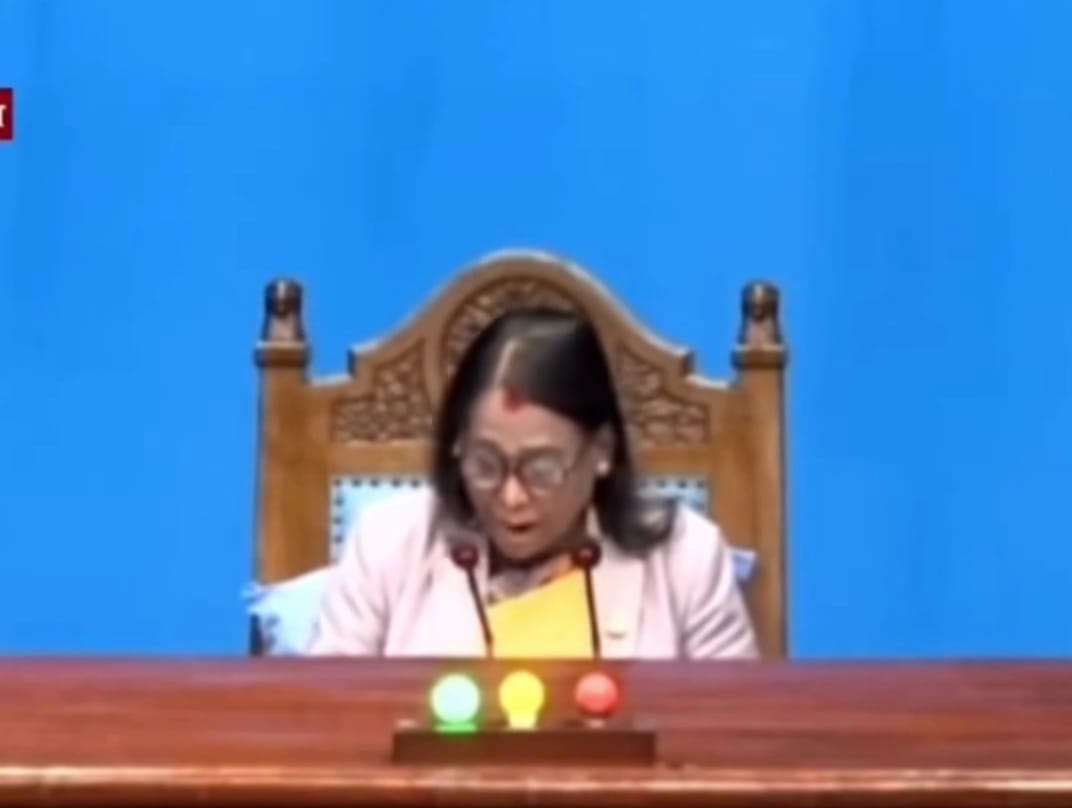A moment of hesitation in Nepal’s parliament has ignited a fiery debate! On Wednesday, lawmaker Amrita Agrahari found herself in the spotlight during a House of Representatives session. Stepping in as a temporary presiding member, she struggled to read and speak Nepali fluently, leading to widespread chatter. Many noticed her difficulty with the language, sparking discussions about the expectations for Nepali lawmakers. Representing the People’s Socialist Party, Agrahari’s moment of struggle has raised questions about language proficiency in Nepal’s diverse political landscape.
The incident unfolded during a routine session at the International Convention Centre in Kathmandu. As Agrahari took the presiding chair, her pauses and stumbles while reading Nepali text caught attention. Social media buzzed with reactions, some critical, others sympathetic, highlighting the public’s expectations for clear communication in parliament. Critics argue that fluency in Nepali, the official language, is essential for lawmakers to connect with constituents and lead effectively. Supporters, however, point to Nepal’s multilingual diversity, suggesting that language struggles do not diminish a lawmaker’s capability.
This moment has fueled a broader conversation about language skills in Nepal’s Federal Parliament. With 275 members in the House of Representatives, representing various ethnic and linguistic groups, the incident underscores the challenges of balancing cultural diversity with official duties. Agrahari, elected under the proportional representation system, has been a vocal advocate for Madhesi rights and social issues. Her supporters emphasize her dedication, arguing that her policy contributions outweigh her language difficulties. The debate continues, reflecting Nepal’s complex linguistic and political landscape.









